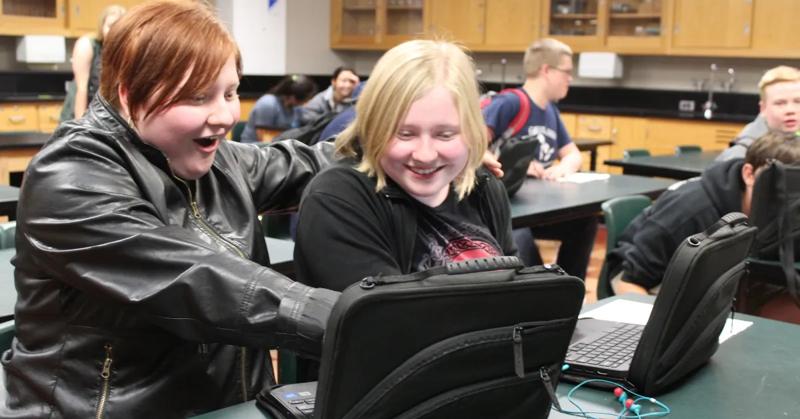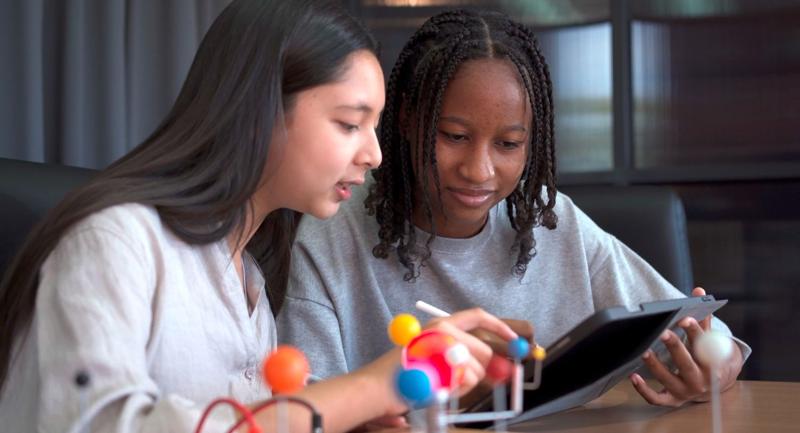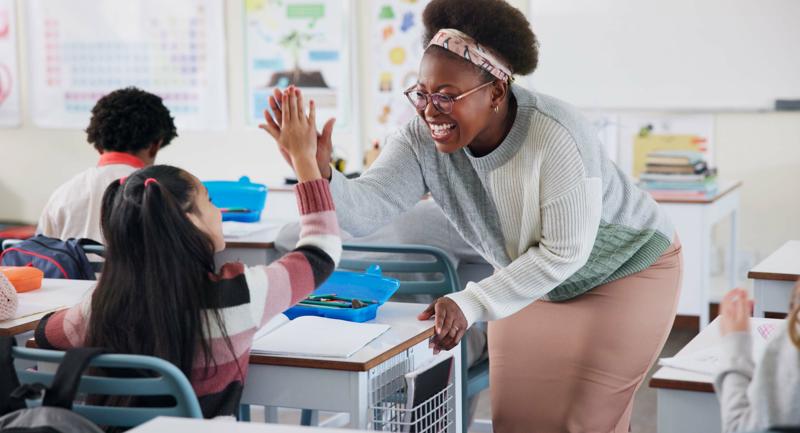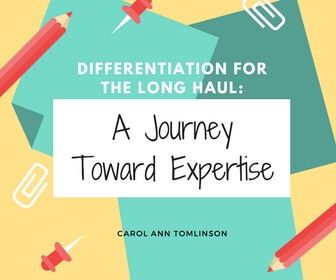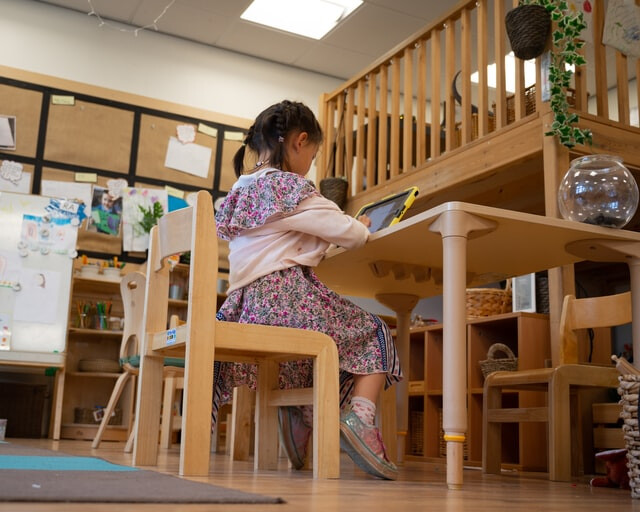Feedback is essential to growth in learning—without it we might keep making the same mistakes or not know how to fix them. Teachers have the opportunity to provide purposeful feedback to students throughout learning experiences, not just as a summative evaluation. Feedback, though, doesn’t only need to come from teachers; peer critiques can also present valuable insight to students in a way that a teacher’s perspective might not. However, modeling questioning strategies and conversational practice are critical if we want our students to ask for and give feedback to each other that is meaningful and relevant, rather than superficial and disconnected.
Asking the Right Questions
No teacher is excited to hear students ask, “Like this?” or “Is this right?,” but many students haven’t been taught the right questions to ask. Too often, students are dismissed with the quick and easy answer and teachers fail to provide them with an opportunity to ask more meaningful questions that might have led to in-depth reflection about their work. As an elementary and middle school art teacher working with over 200 students per week (800 throughout the year), I understand this need to quickly assess and move on. However, the questions won’t change if we don’t teach our students how to ask what they really want to know: “Is there something else I should do?,” “Am I ready to move on?,” or “Do you have any suggestions for me?” This one small change makes a huge difference in how students reflect on their progress—they learn to look at their work again and revise or refine it, rather than merely finishing it and moving on.
Collaborative Conversations
By teaching students evaluative skills and language to help them communicate their thoughts, teachers prepare students to participate in collaborative academic conversations that are insightful and productive and often bring about change in the work created. We want our students to care about their learning and progress, but without the time and space in which to practice with each other, their feedback and reflections may not be authentic. In addition to asking the right questions about their own work, students need to understand and practice providing relevant feedback to their peers.
After spending several weeks at the beginning of the school year demonstrating questioning and feedback strategies with my students, I noticed them independently engaging in reflective conversations with their peers at different stages of their creative processes. Not only was it a joyous moment for me to see them implementing what I had taught, but it also was visibly effective and helpful for each student who contributed to the discussion. Students stopped asking me if they were finished; rather, many spent much more time either changing their work based on peer feedback or refining areas that just needed a little more attention. I also observed that the more students conversed about their work, the more meaningful and specific their feedback was. No longer do I hear, “Is this good?” or “Yeah, that’s cool.” Now, the conversations include dialogue like “What should I do to make my theme easier to understand?” or “I think you should use red to show emphasis and make that area stand out.”
Ongoing Self and Peer Evaluation
Providing students with the right tools for reflective practice builds language development as well as social interaction. If we want our students to know how to engage with each other in conversations that support their abilities to refine their work, we need to encourage constructive, collaborative conversations as a regular part of ongoing instruction, rather than at the end of a project. From day one in the brainstorming and sketching processes, my students have learned to share their ideas with their classmates in order to assess how they might move forward. Even the shyest students have found a partner or two that they trust to give them honest and insightful feedback. This regular interaction helps students build confidence, and they learn to value each other’s input in ways that may sometimes be more influential than feedback solely from me.
Learning to give and receive meaningful feedback is a skill that will benefit students throughout their lives, in both social and academic conversations and regarding their own work and the works of others. By modeling and providing the time and space for such collaborative conversations to occur regularly, teachers can facilitate a lifelong aptitude for asking questions that provoke insight and reflection and spark conversations that bring about changes that might not occur otherwise.

